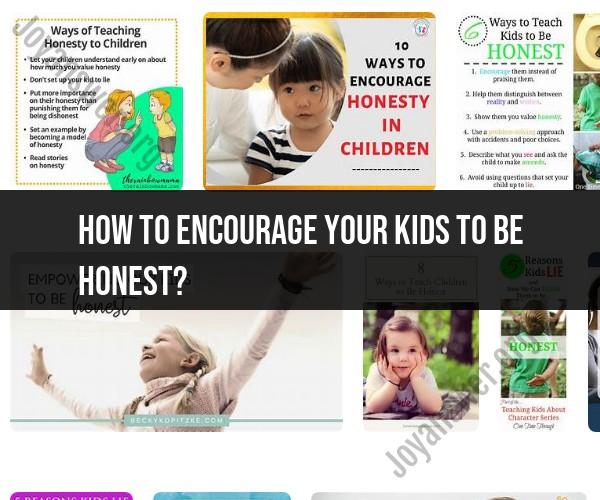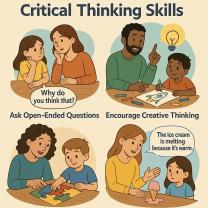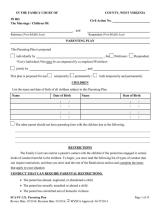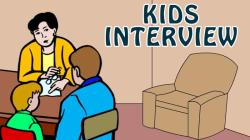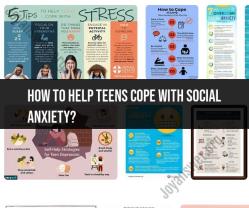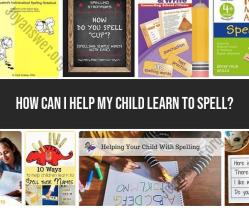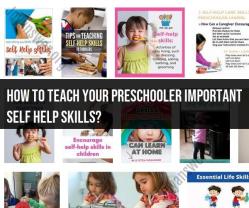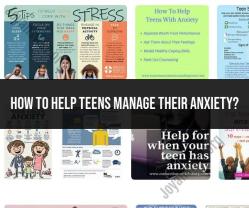How to encourage your kids to be honest?
Encouraging honesty in children is an important aspect of their moral and character development. Building trust and open communication with your children can help foster honesty. Here are some parenting tips to encourage your kids to be honest:
Set a Positive Example:
- Children often learn by observing their parents. Be a role model of honesty in your words and actions. Avoid lying or exaggerating, even in small matters.
Create a Safe and Trusting Environment:
- Let your children know that they can come to you with anything without fear of punishment, especially when they've made a mistake or need to admit something. Emphasize that you value honesty.
Praise Honesty:
- When your child tells the truth, especially in situations where it might be difficult to do so, offer praise and positive reinforcement. Let them know you appreciate their honesty.
Avoid Harsh Punishments:
- While consequences for misbehavior are important, avoid overly harsh punishments that might discourage your child from admitting their mistakes. Make sure consequences are fair and related to the behavior.
Active Listening:
- When your child opens up to you, listen attentively and empathetically. Show that you understand their perspective and feelings.
Ask Open-Ended Questions:
- Instead of asking yes-or-no questions, ask open-ended questions that encourage your child to express themselves. This can help them share their thoughts and feelings honestly.
Teach Problem-Solving:
- Encourage your child to come up with solutions to problems or conflicts rather than resorting to lying to avoid consequences.
Discuss Consequences of Dishonesty:
- Have age-appropriate conversations about the consequences of lying and how it can impact trust in relationships.
Use Storytelling:
- Share stories or examples of honesty and its positive outcomes. Books and stories can be effective teaching tools.
Empower Decision-Making:
- Help your child understand the importance of making choices that align with their values and the benefits of being honest.
Foster a Growth Mindset:
- Encourage the idea that making mistakes is part of learning and growing. Emphasize that honesty in acknowledging mistakes is admirable.
Establish Family Values:
- Clearly communicate your family's values and expectations regarding honesty and integrity.
Limit Temptations:
- Reduce opportunities for dishonesty by setting clear rules and boundaries. For example, if your child has a tendency to lie about homework, establish a routine for checking their completed assignments.
Be Patient and Consistent:
- Building honesty takes time and patience. Be consistent in your approach and reinforce the importance of honesty consistently.
Seek Professional Help If Needed:
- If your child consistently struggles with honesty or engages in persistent dishonest behaviors, consider seeking guidance from a child psychologist or counselor.
Remember that teaching honesty is an ongoing process that evolves as your child grows. Be understanding and supportive, and use these tips to create an environment where honesty is valued and encouraged.
Fostering Honesty in Children: Strategies for Parents
Honesty is an important value for children to learn, and parents can play a key role in fostering honesty in their children. Here are some strategies:
- Be a role model. Children learn by watching the adults in their lives. Be honest in your own words and actions, and your children will be more likely to follow suit.
- Talk to your children about honesty. Explain why honesty is important and how it helps to build trust. Help your children to understand that it's okay to make mistakes, but that it's important to be honest about them.
- Create a safe environment where children feel comfortable telling the truth. Let your children know that they won't be punished for telling the truth, even if they have made a mistake.
- Praise your children for being honest. When your children tell the truth, even when it's difficult, be sure to praise them. This will help them to understand that honesty is valued and appreciated.
- Use natural consequences. If your children lie, let them experience the natural consequences of their actions. For example, if they lie about doing their homework, they may have to do it without watching TV.
Building Trust with Your Kids: Encouraging Honesty at Home
Trust is essential for a healthy relationship between parents and children. Here are some tips for building trust with your kids and encouraging honesty at home:
- Be honest with your children. Children are more likely to be honest with you if they know that you're being honest with them.
- Keep your promises. When you make a promise to your child, be sure to keep it. This shows your child that you can be trusted.
- Be respectful of your child's feelings. Even if you disagree with your child, it's important to respect their feelings. This shows your child that you value their thoughts and opinions.
- Spend time with your child. Make time to talk to your child and play with them. This helps to build a strong relationship and create a safe space where they can feel comfortable talking to you.
- Listen to your child. When your child talks to you, really listen to what they have to say. This shows your child that you're interested in what they have to say and that you value their thoughts and opinions.
Parenting Tips for Raising Honest and Responsible Children
Here are some additional parenting tips for raising honest and responsible children:
- Teach your children about the importance of honesty and responsibility from a young age. Help them to understand that it's important to be truthful and to keep their promises.
- Be a good role model. Children learn by watching the adults in their lives. Be honest and responsible in your own words and actions, and your children will be more likely to follow suit.
- Set clear expectations and rules. Let your children know what is expected of them and what the consequences will be for breaking the rules.
- Be consistent with discipline. When your child breaks the rules, be sure to follow through with the consequences. This helps your child to learn that there are consequences for their actions.
- Encourage your children to take responsibility for their actions. When your children make mistakes, help them to learn from their mistakes and to take responsibility for their actions.
Raising honest and responsible children takes time and effort, but it's worth it. By following these tips, you can help your children to develop these important values.
